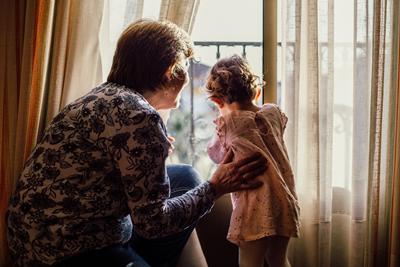Study shows how caring responsibilities affect health and restrict ability to work

New research from the University of Southampton has highlighted inequalities faced by men and women over the age of fifty with caring responsibilities. As well as being more likely to be socio-economically disadvantaged, carers in this age group are more likely to experience problems with their mental and physical health than people who do not provide any care.
The study was led by the University’s Medical Research Council (MRC) Lifecourse Epidemiology Unit. The team analysed the results of over 8000 men and women who took part in the MRC's Health and Employment after Fifty (HEAF) Study.
Life expectancy in Europe is increasing and, combined with reducing birth rates, has changed the shape of populations with growing proportions of older people relative to those of working age. An ageing population also increases the demand for informal care. Whilst such care can save governments enormous health and social care costs, the research team wanted to examine the potential that caring has to impact on national economic productivity if it comes at the expense of the quality or quantity of work that those who provide care are able to carry out.
The findings of this research, published in the European Journal of Public Health, showed that nearly a fifth of men and over a quarter of women reported some form of caring responsibility. Those providing the highest levels of care were more likely to be disadvantaged in terms of both social class and education level compared to those without any caring responsibilities. Caregivers were also more likely to be unemployed or retired, and amongst those who do work, were more likely to be working part-time or to work shifts.
When they considered health outcomes in care providers, the team found that those who provided care for more than 20 hours per week were more likely to suffer from chronic obstructive pulmonary disease (COPD) and to experience musculoskeletal pain, depression and sleep problems.
Professor Karen Walker-Bone Director of the MRC Versus Arthritis Centre for Musculoskeletal Health and Work at the University of Southampton, who led the study, said: “this study has shone new light on the disadvantages faced by those who have to care for their friends or family members, and the significant impact of caring on their own health and ability to work. Whilst governments have increased state retirement age to encourage people to work longer, many have to drop out of the work place in order to provide care to those who need it. It is vital that employers and Government make sure that sufficient support is available to carers to make sure they can remain healthy and productive and do not end up requiring care themselves.”